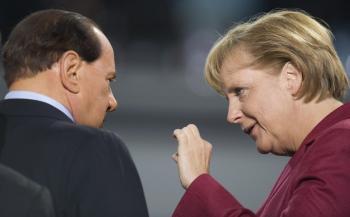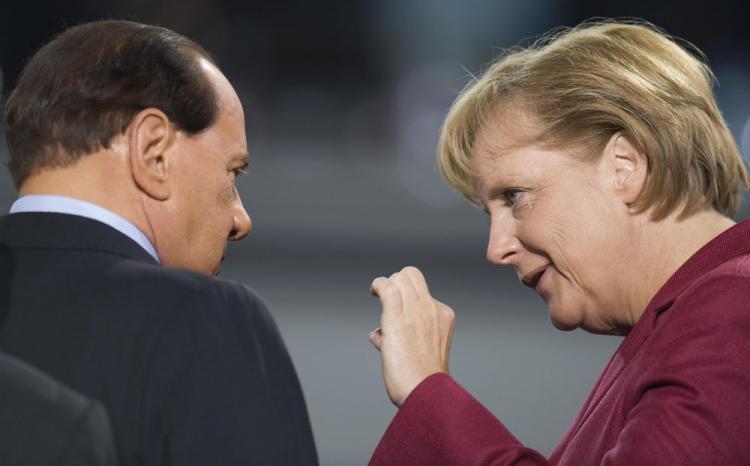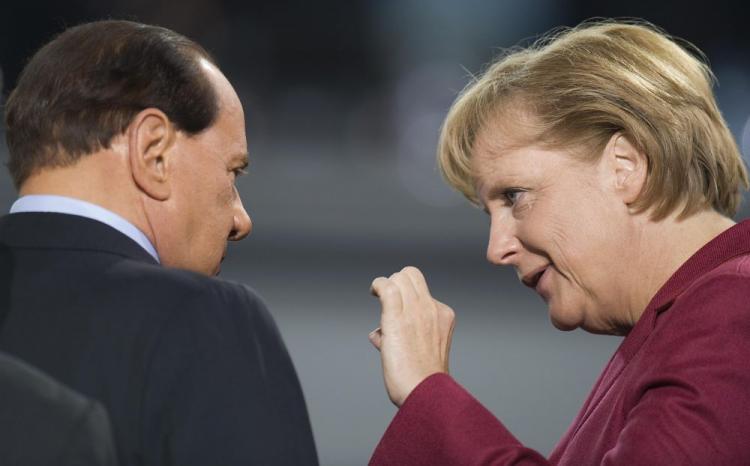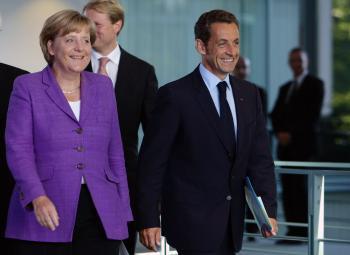HAMBURG, Germany—German Chancellor Angela Merkel urged heads of state at the G-20 economic summit last week to regulate financial markets, and prevent a financial crisis of this magnitude from happening again.
Merkel emphasized multiple times that a bank should not be able to become so big that it can blackmail governments.
“Every financial market product, every financial location and every financial institution must be regulated—worldwide,” said Merkel in Pittsburgh.
Over the last few months, Merkel drew attention to the regulation of financial markets, including the regulation of bankers’ bonuses. Her plans would require major credit institutions to have larger credit reserves before entering into high-risk ventures.
Federal Finance Minister Steinbrück added, “Resistance is already emerging on Wall Street and in London, where there are moves afoot to voice their own interests.”
Both the chancellor and Steinbrück demanded that the political process have priority over the interests of banks. “You cannot expect a dog to guard the sausage stocks,” Steinbrück said.
Six points to regulate the bonus system were written down in the final documents of the summit. The G-20 nations agreed that future bonuses should be paid if the long-term success of banks is to be guaranteed.
Returning performance bonuses in the event of poor performance was an option also agreed upon. The U.K. and U.S. did not agree on the limit for bankers bonus-payments.
German media quoted Merkel and Steinbrück saying Sept. 25 that they were quite satisfied with the results.
Last week the EU had already taken a stand by pushing ahead in creating a European financial regulator. The new regulator will be able to impose binding rules on national regulators. “The pressure of the united standpoint of the EU worked,” said Merkel.
Economic recovery and financial regulations played an important role in the German election campaign, which saw Merkel re-elected as chancellor on Sunday.
Merkel emphasized multiple times that a bank should not be able to become so big that it can blackmail governments.
“Every financial market product, every financial location and every financial institution must be regulated—worldwide,” said Merkel in Pittsburgh.
Over the last few months, Merkel drew attention to the regulation of financial markets, including the regulation of bankers’ bonuses. Her plans would require major credit institutions to have larger credit reserves before entering into high-risk ventures.
Federal Finance Minister Steinbrück added, “Resistance is already emerging on Wall Street and in London, where there are moves afoot to voice their own interests.”
Both the chancellor and Steinbrück demanded that the political process have priority over the interests of banks. “You cannot expect a dog to guard the sausage stocks,” Steinbrück said.
Six points to regulate the bonus system were written down in the final documents of the summit. The G-20 nations agreed that future bonuses should be paid if the long-term success of banks is to be guaranteed.
Returning performance bonuses in the event of poor performance was an option also agreed upon. The U.K. and U.S. did not agree on the limit for bankers bonus-payments.
German media quoted Merkel and Steinbrück saying Sept. 25 that they were quite satisfied with the results.
Last week the EU had already taken a stand by pushing ahead in creating a European financial regulator. The new regulator will be able to impose binding rules on national regulators. “The pressure of the united standpoint of the EU worked,” said Merkel.
Economic recovery and financial regulations played an important role in the German election campaign, which saw Merkel re-elected as chancellor on Sunday.






